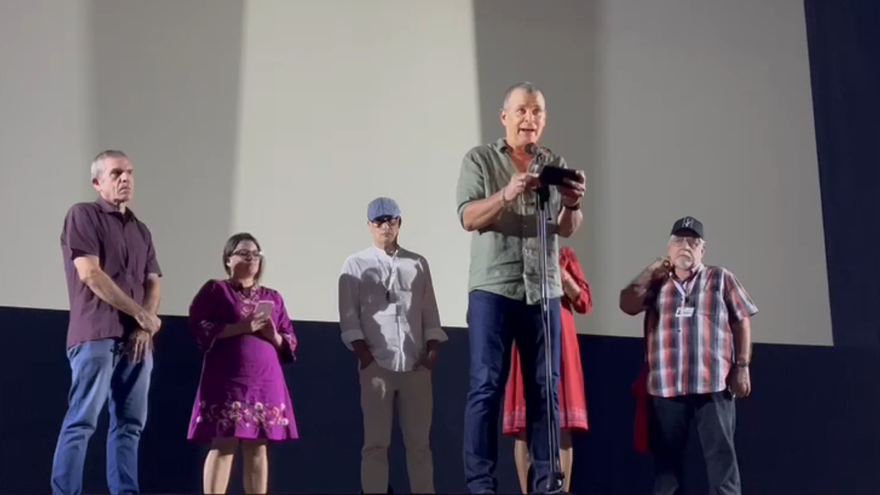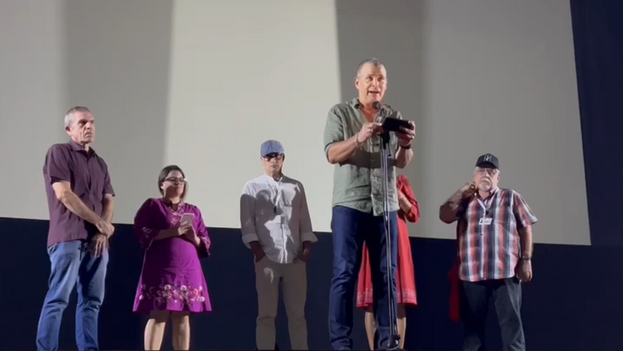
14ymedio, Havana, December 11, 2023 — On Sunday, three years after the Cuban Institute of Cinematographic Art and Industry (ICAIC) began the restoration of the filmography of the censored Nicolás Guillén Landrián, the Latin American Film Festival showed the documentary titled with the filmmaker’s surname. The director, Ernesto Daranas, surprised the audience when he took the stage and presented the film he described as “visionary of a Cuban cinema submitted to ostracism, imprisonment and finally to exile.”
He did not stop there and managed to deliver a speech of almost three minutes — which was applauded at the end — against a censorship “that is not a case of the past,” since “still today” it is exercised not only on the works, but also on the right of the people “to freely access their films, and on the very institutions of Cuban cinema, which includes this beloved festival.”
“The question then is: why do filmmakers insist on being here? The answer is in you, the people of whom we are part, the true producer and protagonist of our films,” said Daranas, who claimed the event as “the only opportunity” to meet with the public “in a country without cinema,” and to be sure that “a film can change the world, even for 90 minutes.”
“The question then is: why do filmmakers insist on being here? The answer is in you, the people of whom we are a part, the true producer and protagonist of our films”
Daranas reclaimed the figure of Guillén Landrián, nephew of the poet Nicolás Guillén, an active fighter against the Batista dictatorship but later repudiated for his “licentious attitude” and comments “not in accordance with a young revolutionary,” according to the documentary itself. His figure embodies the raison d’être of the Assembly of Cuban Filmmakers, said the director, who asked to open a debate on the “stigmas of Cuban culture and society in general.”
“The true problem has never been in our movies, but in the reality to which they are owed. There can definitely be no different country for cinema than the one we have as a people. That’s why censorship persists; that’s why the right to dissent is restricted and criminalized,” he continued, in the midst of the apparent tranquility of those who accompanied him on stage and the public.
“Permit me then to dedicate this presentation to all colleagues and compatriots subject to exclusion and censorship. To those who in any corner of Cuba and the world are still determined to free


